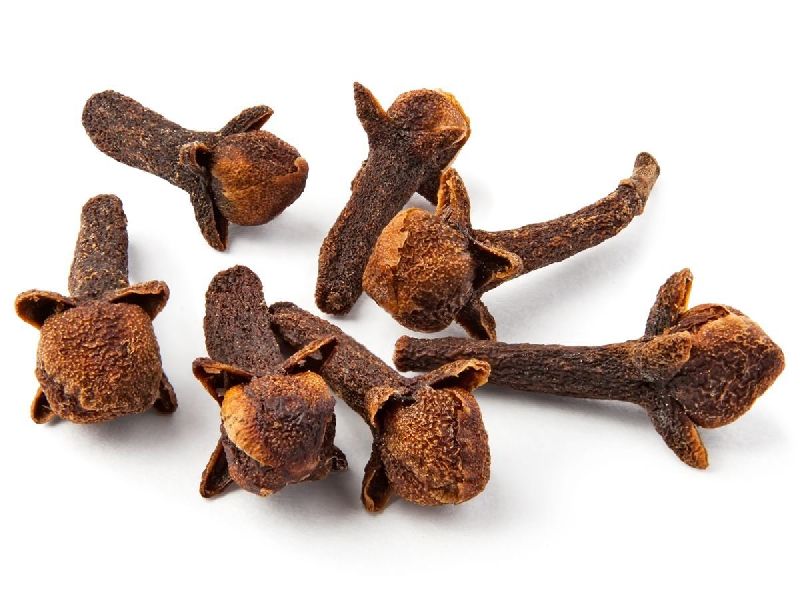Clove

Cinnamon
2019-08-02
Coconut
2019-08-02Common Name
Clove
Scientific Name
(L.) Merr. and L.M. Perry Syzygium aromaticum
History
Clove is made from a dried flower bud of evergreen tree of Syzygium aromaticum. Although this tree is native to Malacca Island in Indonesia but cloves naturally grow in India, Tanzania, Sri Lanka, Brazil and Madagascar. Over 2000 years, clove and its oil have been used in traditional Indian and Chinese medicine. In the fourth century Arab merchants brought clove blossoms to Europe. During the seventh and eighth centuries clove was used as a food preservative in Europe. Today in many homes clove is used as spice and evidences suggest that its use as a therapeutic drug against harmful organisms is going to grow.
Health Benefits
1. Improving Memory Function
In 2011 the effect of clove on learning, memory and reducing oxidative stress in laboratory mice was investigated and its results were published in journal of Planta Medica. Oxidative stress was evaluated by measuring the level of Malon di aldehyde (MDA) and decreased glutathione (GSH) in the brain. Initial treatment with clove oil at a rate of 1 and 5 (ml/kg) for 3 weeks significantly reduce delay in learning. Therefore, consumption of clove oil can restore the memory loss caused by scopolamine through reducing oxidative stress.
2. Improving Liver Function
Disorder in insulin function of diabetic patients leads to increase in liver glucose production. Recent studies have shown the effect of these plants on increasing glucose absorption into lipid cells (like insulin function). Based on the results of a research in 2005 the clove extract has a similar function to insulin in liver cells and cells of liver tumor through reducing gene expression of enzymes of phosphoenolpyruvate carboxykinase (PEPCK) and glucose-6 phosphatase (G6Pase). More analyses have indicated that clove and insulin in a similar way adjust expression of many similar genes. These results emphasize on potential role of derived ingredients from clove as insulin-like factors.
3. Boosting Libido
In 2013 the effect of clove extract oil on improving the fertility of male rats exposed to manganese was considered and its results were published in journal of Advances in Sexual Medicine. Based on results clove extract oil improved sperm density and morphological abnormality caused by manganese. Also, in 2004 in a research that its results were published in journal of BMC Complementary and Alternative Medicine, clove extract significantly improved the reproductive and sexual desire behavior of laboratory mice. Of course it is worth noting that in a published research in journal of Food and Chemical Toxicology, the effect of three concentrations of clove extract (15, 30 and 60 mg/kg of body weight) on laboratory mice testicular performance in a spermatogenesis cycle (35 days) was investigated and the results have shown that lower density (15 mg) of extract increased 17beta-HSD activity (the enzyme converting androstenedione to testosterone hormone) and delta5 3beta-HSD (progesterone biosynthesis catalytic enzyme) and testosterone serum level, but higher doses of extract (30 and 60 mg) reduced the above items and reduced daily sperm production. According to these results researchers recommend to be more cautious in the use of clove to increase libido (sexual desire).
4. Anti-Microbial
The results of a research in 2005 that were published in Journal of Applied Toxicology showed that clove oil leads to protecting laboratory mice against Aflatoxicosis disease (caused by aflatoxin fungus). Based on published information in Journal of Natural Products, clove ingredients inhibit activity of oral pathogens. In this research flavones, kaempferol and myricetin of methanolic extracts of clove have shown inhibitory activity against P. intermedia and P. gingivalis. Pathogens. Also, the effect of extract of clove extracted on infected mice to type-1 herpes simplex virus (HSV-1) was studied and its result was published in Journal of Dermatological Science. Oral dose (750 mg/kg in a day) of this extract for ten days prevented the progression and relapses of HSV-1 disease and reduced the incidence of inflammation and skin redness in comparison to control group.
5. Anti-cancer
Based on published study in Journal of Natural Products, clove terpenes lead to isolate five active ingredients that their names are beta caryophyllene, beta caryophyllene oxide, alpha humulene, alpha humulene epoxide I and eugenol. These ingredients increased detoxification enzyme activity of glutathione s-transferase in mice liver and small intestine. The reason for the anticancer property of clove has been known to be its effect on the induction of detoxification of enzymes and inhibition of chemical carcinogens.
Bioactive Compounds
Phenylpropanoids (such as Carvacrol, Thymol, Eugenol And Cinnamaldehyde); Phenolic acids such as Gallic acid ant its derivatives, Hydroxybenzoic acids, Caffeic acid, Ferulic acid, Salicylic acid and Hydroxycinnamic acids; Flavonoids (such as Kaempferol and Quercetin).
Traditional Use
From the remote past, clove had a medicinal and cooking application. Its oil was used as an expectorant, anti-nausea and vomiting with conflicting clinical outcomes. Clove is a traditional therapist for toothache relief, ear pain, blood pressure, pain caused by burns and wounds. In traditional medicine of China clove is known with the name of “ding xiang” or “nail-shape spice” and is used to treat indigestion, nausea, vomiting and infection. Clove is used to reduce toothache. In tropical Asia cloves were used to treat various infections such as malaria, cholera and tuberculosis.




